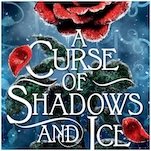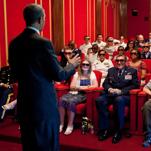Cold War Kids: Fresh Perspective
With their third studio album, 2011’s Mine is Yours, Cold War Kids had reached a creative peak—or so they thought. Working with producer Jacquire King (Kings of Leon, Norah Jones, Modest Mouse), the Cali-based quartet sharpened and refined their songs, downplaying the messy experimentation of 2008’s Loyalty to Loyalty in favor of a sculpted, massively catchy arena-rock approach, emphasizing the soulful elasticity of Nathan Willett’s massive voice with lyrics focused on romantic turmoil. At the time, it sounded like their commercial breakthrough—their transformation from slightly obscure indie-rockers to confident modern rock veterans. But the critics, baffled and underwhelmed by this sudden stylistic shift, tore the album to shreds.
“There are things critically that I don’t seek out for the most part,” Willett reflects. “At the same time, when the general attitude toward the whole record was the way that it was for that record, I was very aware. Honestly, it was hugely disappointing that the record appeared to be misunderstood or maybe made us think we’d gone in the wrong direction. Whether it was reviews or just reactions to it, it seemed like people didn’t really get beneath the surface of it. We’d put a huge amount of work into it. We were really ambitious and excited about it, and we just felt it wasn’t understood in the way we hoped it would be. I think it had a really big effect on us, and bouncing back from that was really tough.”
From day one, Cold War Kids had always been the same guys: Willett, bassist Matt Maust, drummer Matt Aveiro and guitarist Jonnie Russell—four optimistic kids who met in 2004 at Biola University, a private Christian college in southern California. But three albums later, disillusioned by the widespread negative response toward Mine is Yours, the band wasn’t sure how to follow—or if they should bother following at all. Russell, at least in part to further his education, quit the band, while the remaining members struggled to pick up the pieces.
-

-

-

-

-

-

-

-

-

-

-

-

-

-

-

-

-

-

-

-

-

-

-

-

-

-

-

-

-

-

-

-

-

-

-

-

-

-

-

-








































